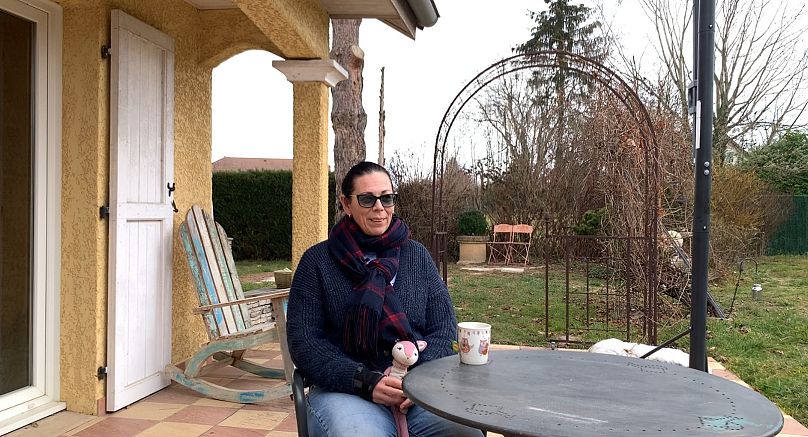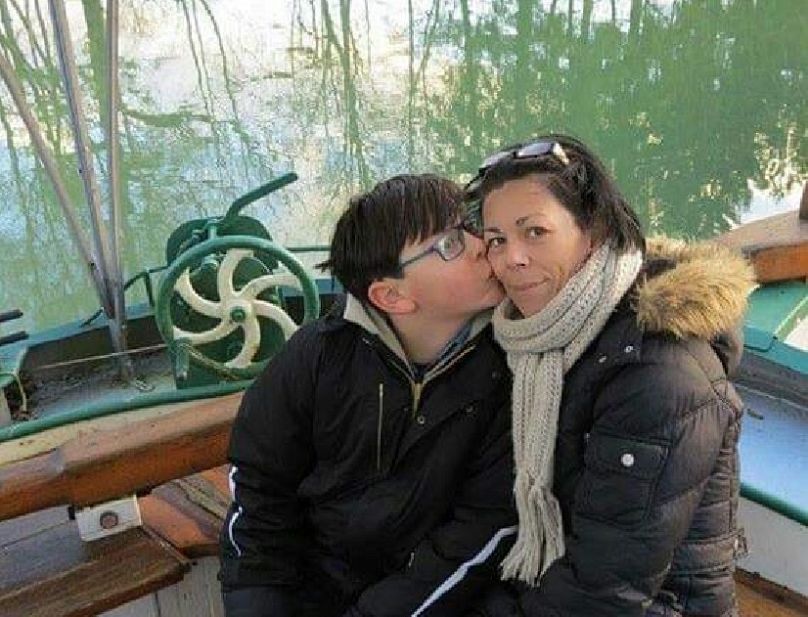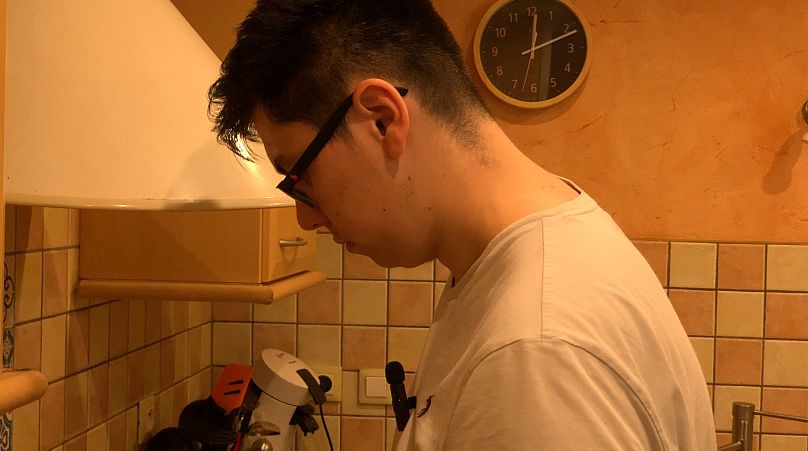When her son was born, Marie Rabatel couldn’t understand him. Having autism she needed extra help. What kind of support do women with disabilities need to be mothers?
When her son was born, Marie left him in his cot, he wouldn't stop crying and she was completely overwhelmed.
The young mother was lost, she didn't understand what was going on, she didn't know how to calm her baby down and she didn't feel an attachment to him. She was consumed by guilt.
She was told to feed her baby at set hours and she did it, even though he was not hungry. Establishing a rigid routine helped Marie in her day-to-day life, but the baby didn't follow the same pattern.
"For the first few months, my husband took care of him, acting as father and mother. He was the one who bathed him and got up at night to feed him.” That support is what allowed her to become a mother and to learn how to understand the baby's needs.
The day her baby started calling her mum has become the fondest memory of their relationship.
“It was then when I realised I was his mother and not an educator", she says.
Marie Rabatel, 48, who has autism spectrum disorder, always felt that when she faced motherhood issues, she also had to deal with double discrimination.
"If a mother forgets a dose of milk, they will tell her it is normal, she is overwhelmed because she has just become a mother. But if I forget, they will blame it on my disability."
Nowadays, she needs the peace and quiet of her country home an hour from Lyon in southeastern France. She lives there with her husband and their son visits them on weekends. Antoine has just turned 18 and is studying in a different region.
"I grew up a lot on my own," he remembers. His mother voluntarily admitted herself to a psychiatric hospital, where she spent five years, so Antoine's grandparents took care of him a lot of the time.
What Marie’s disability made it difficult for her to do, had to be done by a psychologist.
"It gave me someone to talk to," says Antoine. Sport turned into his lifeline, allowing him to build relationships with his friends.
"I didn't know what a friend was, so I couldn’t explain to him how to socialise," Marie says. "The psychologist helped him make friends and open up to people”.
Antoine has been a constant support for Marie since he was a child. He was the intermediary between her and the teachers at school. And he remains a great support, the one who understands her best and manages to calm her down when she feels overwhelmed. Even, at times, during the long interview Euronews had with them at their home.
For him, there was nothing unusual about his mother: "She's the only one I've had, so for me it's normal. I never wondered if she had a disability.”
"It's the environment that makes you feel disabled," adds Marie. And she was fortunate to be surrounded by a family that provided her with a happy and supportive childhood, despite the bullying she suffered at school.
Her sister, just a year older than her, served as a role model for the tasks that were most difficult for Marie.
"My sister has helped me a lot, I used to imitate her to brush my teeth or wash myself, all the daily routine tasks", she says. "Autism makes us good imitators". A virtue that also helped her as an athlete, leading her to win several national athletics championships.
She also had the support of her parents when she got married and became pregnant with Antoine. "They were very happy for me. No one around me told me I couldn't do it".
This is why she never thought she would not be able to raise her son.
What is important, she says, is to provide the necessary parenting support. "I had the courage to ask for help without fear that my child could be taken away from me, and I was able to benefit from regular visits from social services and appointments with the paediatrician, as well as my family and friends who came very often to help me."
However, women living in institutions for people with disabilities can’t count on this support. "We don't have a plan to provide it," admits Rubén Parrillo, psychologist and director of the Inclusión Activa institution.
"Leaving these families with the lovely message of human rights but no support is a problem," says Spanish MEP Rosa Estarás (EPP-ED). She has a child with a disability, so understands how parents of women with disabilities feel when faced with the fear of an unwanted pregnancy.
"Who is going to take care of that child? And when I die, what will happen?” These kinds of questions are always on their mind.
This article was produced with the support of Journalismfund Europe.














